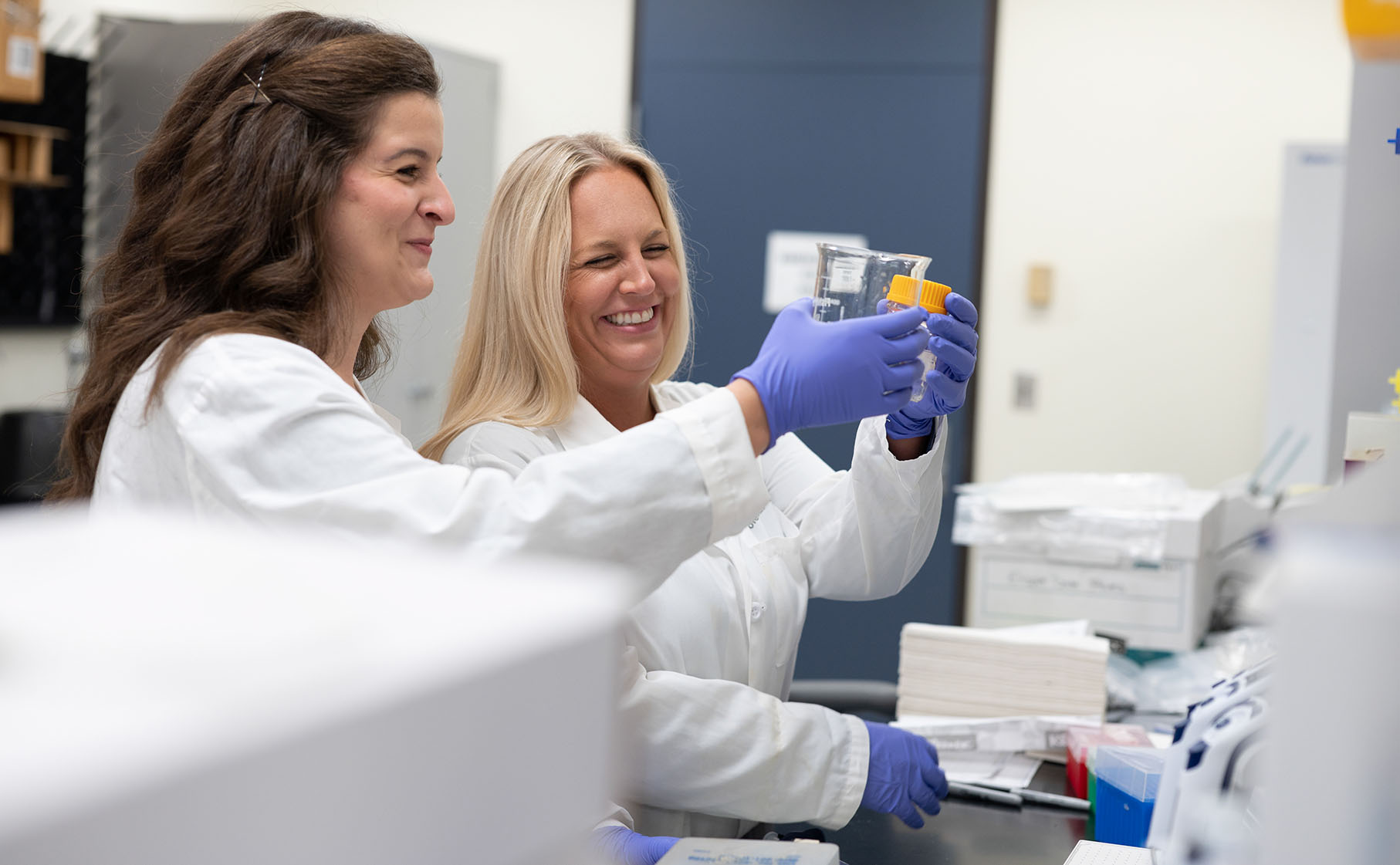Careers in craniofacial, dental and oral health research are diverse and have the potential to contribute to the development of future novel treatments. Researchers need to integrate techniques from multiple disciplines to develop new knowledge and educate future providers and researchers. The School of Dentistry’s DDS/PhD dual degree program prepares learners to meet the challenges of interdisciplinary research and advancing technologies.
Graduating with a DDS/PhD dual degree will position you for a career in academia, industry and government research institutes, as well as clinical practice.
Program at a glance
Program details
The DDS/PhD program requires eight years in total. The majority of students pursue a 4+4 plan, beginning with the PhD. Other options, including starting the PhD after beginning in the DDS program are possible for motivated students.
The PhD requires two years of coursework followed by two years of intensive research. The DDS program begins in year five, with time available to continue publishing research papers and attending lab meetings. As clinical competencies are passed, additional time for research is added to the student’s schedule.
How to apply
DDS/PhD applicants complete two applications: one through the School of Dentistry and one through the Graduate School. Applicants are encouraged to apply to both programs in the same admissions cycle. The DDS application deadline generally comes first, so applicants should submit that application before preparing their PhD application. The DDS program admits students on a rolling basis, so prospective learners are encouraged to apply early. Each program evaluates the applications separately.
See the degree program websites for more details and deadlines:
Financial Support
The Graduate Program in Oral Biology attains funding for all admitted PhD students. Sources include faculty research grants, internal and external fellowships and training grants. Available funding varies year to year, and no separate funding application is required. Applicants are encouraged to explore other funding possibilities through home governments, NGOs, and professional organizations.
Frequently Asked Questions
How many students enroll in the dual program each year?
We accept one or two DDS/PhD dual students per year. We limit our enrollees to ensure that we accept students with a high likelihood of success and provide them one-on-one support throughout the program.
Do you accept international students and non-Minnesota residents?
Yes, we accept international students and non-Minnesota residents. Residency status does not play a significant role in the dual degree admissions. That said, DDS and PhD applications are evaluated separately. Each program reviews students on its own standards and there is no negotiation between the two programs. If you are accepted to one program and not the other, you are free to enroll in the program that accepted you. If you are accepted to both programs, you will automatically be enrolled in the DDS/PhD program.
Can I apply to the PhD program after starting dental school? What about the other way around?
Yes, it is possible to start in the DDS program and then move to the PhD program. It is also possible to start the PhD program and then apply to dental school. Contact the individual programs for more details.
Questions? Contact us:
DDS Program
[email protected]
612-625-7477
Graduate Program in Oral Biology
[email protected]
MinnCResT Program
[email protected]
612-626-4483
